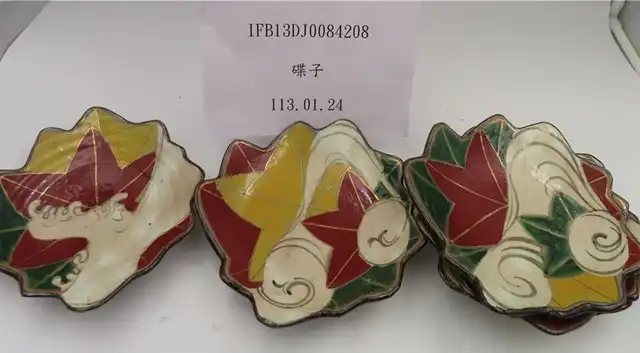Japanese Ceramic Tableware Exports Exceed Lead Limits by 17 Times
- Normal Liver Cells Found to Promote Cancer Metastasis to the Liver
- Nearly 80% Complete Remission: Breakthrough in ADC Anti-Tumor Treatment
- Vaccination Against Common Diseases May Prevent Dementia!
- New Alzheimer’s Disease (AD) Diagnosis and Staging Criteria
- Breakthrough in Alzheimer’s Disease: New Nasal Spray Halts Cognitive Decline by Targeting Toxic Protein
- Can the Tap Water at the Paris Olympics be Drunk Directly?
Japanese Ceramic Tableware Exports Exceed Lead Limits by 17 Times
- Should China be held legally responsible for the US’s $18 trillion COVID losses?
- CT Radiation Exposure Linked to Blood Cancer in Children and Adolescents
- FDA has mandated a top-level black box warning for all marketed CAR-T therapies
- Can people with high blood pressure eat peanuts?
- What is the difference between dopamine and dobutamine?
- How long can the patient live after heart stent surgery?
Japanese Ceramic Tableware Exports Exceed Lead Limits by 17 Times
A total of 5 batches of Mizusyaki chopstick rests imported from Japan by Taiwan’s “Ri Chang Enterprise Co., Ltd.” were found to contain the heavy metal lead, with levels ranging from 24 to 306 μg/cm².

picture sourece: Taiwan Food and Drug Administration (TFDA)
The Taiwan Food and Drug Administration (TFDA) announced today the list of border inspections revealing unqualified food items. Due to the impact of the Chinese New Year holidays, this announcement includes a total of 48 unqualified items. Among them, 7 batches of ceramic tableware imported from Japan, including plates, dishes, and chopstick rests, were found to exceed the standard for heavy metal lead content. The leaching test values were as high as 306 μg/cm², which is 18 times the acceptable standard. As a result, the TFDA will increase the sampling rate for Japanese imported tableware to 20% to 50% for a period of six months.
The TFDA routinely publishes information on border inspections of non-compliant food items every week. This time, a total of 48 items were listed, including 10 batches of Japanese imported strawberries, 5 batches of Korean imported grapes, and 7 batches of Japanese imported tableware. Additionally, Australian imported fresh peaches, Chinese imported frozen sturgeon caviar, French imported fresh black truffles, Vietnamese imported frozen catfish, Japanese imported muskmelons, and other items were intercepted at the border.
Among the 7 batches of Japanese imported tableware listed this time, all were found to exceed the standard for heavy metal lead. Deputy Director of the TFDA, Lin Jinfu, explained that according to the “Food Utensils, Containers and Packaging Hygiene Standards,” the standard for heavy metal lead in porcelain tableware is 17 μg/cm² or less, as determined by a leaching test with 4% acetic acid at room temperature for 24 hours. Plates imported by “Ebisu Restaurant Co., Ltd.” were found to contain 225 μg/cm² of heavy metal lead, and a set of five dishes were found to contain between 19 and 34 μg/cm² of heavy metal lead. The Mizusyaki chopstick rests imported by “Ri Chang Enterprise Co., Ltd.” from Japan, a total of 5 batches, were all found to contain heavy metal lead, with levels ranging from 24 to 306 μg/cm².
Lin Jinfu stated that it is somewhat unusual for 7 batches of Japanese tableware to be found to contain heavy metal lead, which may be due to contamination during the glazing process or natural heavy metal content in the raw materials. Businesses will need to investigate the cause. The TFDA will adjust the border inspection frequency for all Japanese imported tableware starting from the 26th, increasing it from the current 2% to 10% to 20% to 50% for a period of six months.
In addition, this announcement also revealed that 10 batches of Japanese imported fresh strawberries were found to have pesticide residues, totaling 1482.3 kilograms. Among them, 9 batches were found to contain fluopyram at levels ranging from 0.03 to 0.57 ppm, and 1 batch was found to contain acaricide metabolites at 0.02 ppm. According to regulations, neither pesticide should be detected, with a detection limit of 0.01 ppm as the regulatory value. Statistics show that out of 529 batches of Japanese imported strawberries inspected at the border in the past six months, 28 batches were found to be non-compliant, resulting in a non-compliance rate of 5.29%.
From June 1st of last year to April 30th of this year, the TFDA has implemented the highest level of surveillance inspections for imported Japanese strawberries, requiring 100% inspection and approval of each batch before entry. Since January of this year, measures have also been taken to temporarily suspend imports from 9 Japanese manufacturing plants for one month. Lin Jinfu stated that among the 10 batches of non-compliant strawberries announced today, there are 4 new Japanese manufacturing plants. As per usual, imports from these plants will be temporarily suspended for one month, starting from the 23rd until March 22nd.
This announcement also revealed that 5 batches of imported grapes from South Korea were found to contain pesticide residues, including tebufenozide, omethoate, and cyprodinil. According to TFDA statistics, out of 246 batches of South Korean grapes inspected at the border in the past six months, 21 batches were found to be non-compliant, resulting in a non-compliance rate of 8.54%. Lin Jinfu stated that since February 5th of this year, the TFDA has implemented a 100% inspection policy for South Korean grapes, which will continue until August 4th of this year.
Japanese Ceramic Tableware Exports Exceed Lead Limits by 17 Times
(source:internet, reference only)
Disclaimer of medicaltrend.org
Important Note: The information provided is for informational purposes only and should not be considered as medical advice.



